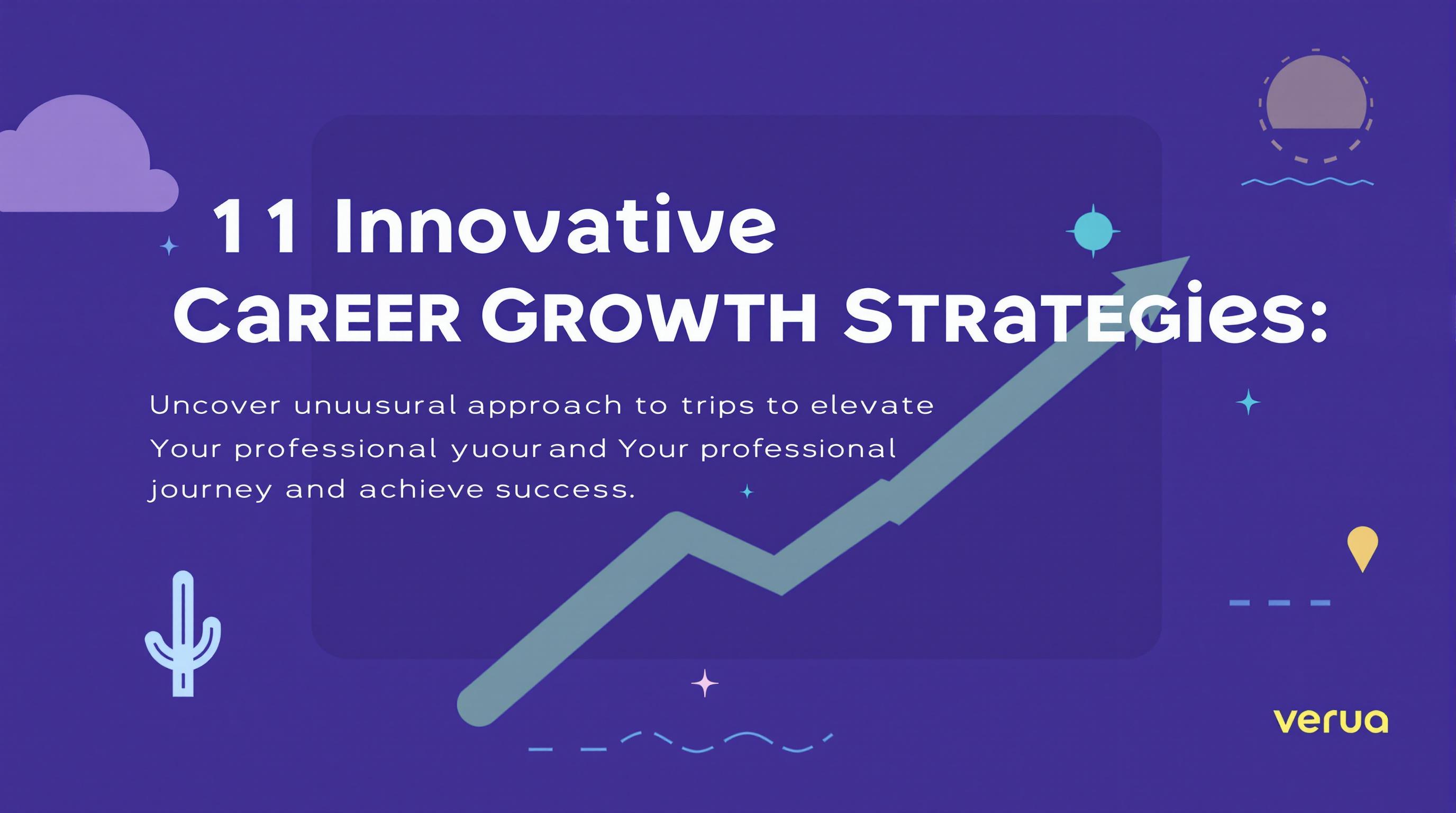Related Articles
- Navigating the Talent Labyrinth: How Emotional Intelligence Is Shaping New Hiring Practices in Unseen Markets
- Behind the Scenes: How Automating HR Processes Is Redefining the Future of Recruitment and Job-Seeking Strategies
- Beneath the Surface: Unveiling the Surprising Role of Environmental Sustainability in Shaping Future Careers
- Exploring the Quirky Side of Remote Work: How Hobbies Are Fueling Professional Success in Unexpected Ways
- How the Remote Revolution is Inspiring Unlikely Friendships Across Continents: A Study of Global Connectedness
- The Unforeseen Bond: How Virtual Coworking Spaces Foster Unexpected Connections Amidst Remote Work
9 Unique Mindset Shifts That Will Revolutionize Your Career Trajectory: Rethink Growth for Lasting Success
9 Unique Mindset Shifts That Will Revolutionize Your Career Trajectory: Rethink Growth for Lasting Success
9 Unique Mindset Shifts That Will Revolutionize Your Career Trajectory: Rethink Growth for Lasting Success
1. Embrace Failure as a Learning Tool
Rather than viewing failure as a setback, consider it a vital component of the growth process. Thomas Edison famously said, "I have not failed. I've just found 10,000 ways that won't work." Understanding that each failure provides an opportunity for reflection can shift your focus from avoiding risk to seeking growth.
When you embrace failure, you become more resilient and more willing to pursue innovative ideas. This shift encourages a culture of creativity and experimentation in the workplace, leading to breakthroughs that may not have occurred otherwise.
Moreover, this mindset allows individuals to develop a growth-oriented mentality that can enhance overall career satisfaction. By reframing failures as lessons, professionals remain engaged and motivated, propelling their careers in exciting new directions.
2. Transition from Competition to Collaboration
The traditional view of climbing the corporate ladder often fosters a competitive atmosphere. However, shifting to a collaborative mindset encourages teamwork and shared success. This transition can lead to more innovative solutions and a positive working environment.
When colleagues collaborate, they pool their strengths, leading to enhanced creativity and problem-solving abilities. A study published in the Harvard Business Review illustrates that collaborative teams are significantly more productive than competitive ones, as they foster trust and communication.
This approach not only aids individual career growth but also contributes to the overall success of organizations. Focusing on collaboration can lead to stronger relationships, thereby enriching your professional network and opening new avenues for career advancement.
3. Reframe Feedback as Constructive Guidance
Many professionals dread receiving feedback, fearing criticism. However, viewing feedback as an opportunity for constructive guidance can shift your entire perspective on performance. By considering feedback as a form of support, you become more open to growth.
This reframing encourages a culture of continuous improvement. According to the National Employee Voice Survey, employees who receive regular feedback are 3.5 times more likely to be engaged in their work, illustrating that constructive criticism can fuel motivation.
Moreover, actively seeking feedback not only benefits your development but also showcases your commitment to personal growth. By demonstrating a willingness to learn, you position yourself as an asset to any organization, paving the way for career advancements.
4. Adopt a Lifelong Learning Mindset
In a constantly evolving job market, adopting a lifelong learning mindset is essential for sustained success. Rather than viewing education as a one-time event, cultivate curiosity and drive to continuously expand your skill set.
Online platforms like Coursera and LinkedIn Learning have made it easier than ever to explore new subjects. A report from the World Economic Forum indicates that ongoing education and upskilling will be crucial for over 50% of employees by 2025 to remain competitive.
This commitment to lifelong learning not only enhances your professional qualifications but also keeps you adaptable amidst changing industry demands. A continuous search for knowledge can open doors to new opportunities and networking connections.
5. Shift from Exclusivity to Inclusion
Exclusivity often breeds a narrow view of success; however, embracing inclusion expands perspectives and fosters diverse ideas. By promoting inclusivity, everyone contributes their unique viewpoints, leading to better decision-making and more innovative strategies.
A McKinsey report reveals that diverse teams outperform their less diverse counterparts by 35%. This shift not only enriches the workplace culture but also directly correlates with a company's success and reputation in the industry.
Fostering an inclusive environment encourages collaboration and engagement, which can lead to more significant professional growth among team members. This holistic approach benefits individual careers while enhancing organizational effectiveness.
6. Practice Mindfulness in Professional Interactions
In today’s fast-paced environment, practicing mindfulness can profoundly impact workplace interactions. Being present and engaged can enhance communication and understanding during discussions, reducing misunderstandings and improving relationships.
Research published in the Journal of Occupational Health Psychology emphasizes that mindfulness increases emotional intelligence and reduces stress in workplace settings, contributing to better decision-making and team dynamics.
When professionals embody mindfulness, they create an atmosphere that values mental well-being, fostering productivity and satisfaction. Prioritizing mindfulness not only benefits individual performance but also positively influences organizational culture.
7. Redefine Success Beyond Traditional Metrics
Many career trajectories narrowly define success through promotions or monetary gains. However, redefining success to include personal fulfillment, well-being, and work-life balance can shift how individuals approach their careers.
The Gallup Organization's research indicates that employees who find meaning in their work are not only happier but are also more productive, demonstrating that redefining success can lead to a more fulfilling career.
This broadened perspective allows for a more holistic view of one's professional journey, emphasizing the importance of passion and purpose over rigid metrics. Embracing a broader definition of success leads to lasting satisfaction and engagement.
8. Cultivate Emotional Resilience
Resilience is critical for navigating the ups and downs of any career path. Developing emotional resilience allows individuals to cope effectively with challenges and setbacks, viewing them as stepping stones rather than obstacles.
A research study published in the Journal of Applied Psychology highlights that resilient employees tend to perform better, report higher job satisfaction, and remain committed to their organizations. Cultivating resilience equips you with the tools to adapt and thrive in changing environments.
By focusing on building resilience, professionals can maintain a positive outlook, even when faced with adversity. This mindset shift fosters a more proactive approach to career challenges, enhancing your overall trajectory.
9. Align Your Career with Your Values
Finding alignment between your career goals and personal values is vital for long-term satisfaction. When your work resonates with your core beliefs, you are more likely to be motivated and engaged in your daily tasks.
Research suggests that employees who work in alignment with their values are more productive and committed to their organizations. According to the Culture Amp's employee engagement report, such alignment fosters a loyal and dedicated workforce.
Identifying your values and making career choices that align with them enables you to find purpose in your work, leading to enhanced job satisfaction. This alignment is crucial for sustained motivation and growth over time.





